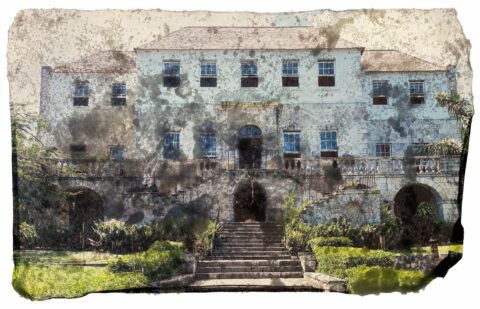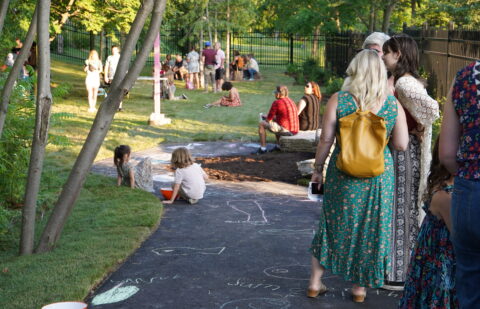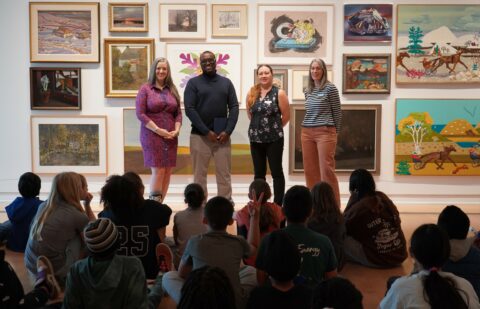As we begin National Indigenous History Month, and look ahead to our own programming, it would be incomprehensible to not acknowledge the recent discovery of 215 children’s remains on Tk’emlups te Secwepemc First Nation, at the site of the former Kamloops Indian Residential School in BC. The news is devastating. It is a stark reminder that the genocide of Indigenous peoples on this land is more recent than some of us may like to think. It is not history and has a lasting impact today through intergenerational trauma, land confiscation and resource extraction, the suppression of language and culture, and limiting basic human rights to clean water, education, and healthcare.
As a settler on this land, I have a responsibility to understand the ongoing impacts of colonialism and to support the self-determination of Indigenous peoples. There are 94 calls to action in the Truth and Reconciliation Commission (TRC) completed in 2015, with actions 67-70 specifically for Museums and Archives. As a gallery, the RMG is committed to social change and redressing the very real imbalance perpetuated through our organization as a colonial construct. We play an integral role in sharing Indigenous stories through art and programming, as we work towards justice.
I encourage you to read the TRC Calls to Action. If, like me, you are a settler it is never too late to learn and never too late to take action towards real change.
Miigwech,
Lauren
If you need support, there is a 24/7 Emergency Crisis Line available through the Indian Residential School Survivors Society (IRSSS) at 1800-721-0066 and the National Residential School Crisis line 1-866-925-4419.
If you are looking to learn or read more, here is a selection of websites, resources, and other programming:
National Centre for Truth and Reconciliation at the University of Manitoba https://nctr.ca/
A Special Report published by the Yellowhead Institute: Calls to Action Accountability: A 2020 Status Update on Reconciliation
Learn about the land where you live and its territories, languages, and treaties: https://native-land.ca/
Learn more about Indigenous-settler relations by taking a FREE course through the Faculty of Native Studies at the University of Alberta
You can make a donation to the Indian Residential School Survivors Society here: https://www.irsss.ca/donate
Resources For non-Indigenous People: http://www.trc.ca/resources.html….
Assembly of First Nations – Its Our Time – Residential Schools Toolkit: https://education.afn.ca/…/learnin…/residential-schools/
Aboriginal Healing Foundation – Residential School Resources Directory: http://www.ahf.ca/publications/residential-school-resources
An Overview of the Indian Residential School System booklet: http://www.anishinabek.ca/…/An-Overview-of-the-IRS…
If you’re a settler, here are some places where you can make a donation to support residential school survivors and their families:
Indian Residential School Survivors Society
Woodland Cultural Centre’s Save the Evidence campaign
National Centre for Truth and Reconciliation
First Nations Child & Family Caring Society
Native Women’s Association of Canada
Gord Downie & Chanie Wenjack Fund
Follow these regionally based organizations on your social media:
Bawaajigwein Aboriginal Community Circle @Bawaajigewin on Facebook
Mississaugas of Scugog Island First Nation @MSIFN on Twitter
If you’re a settler, start following @OnCanadaProject to continue your learning


